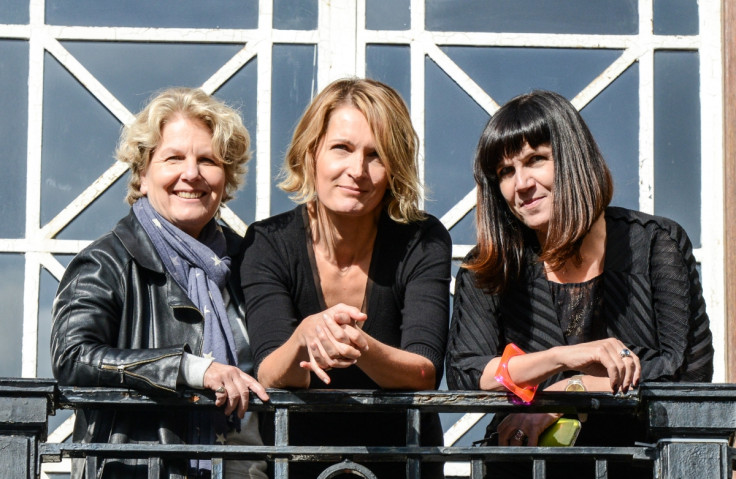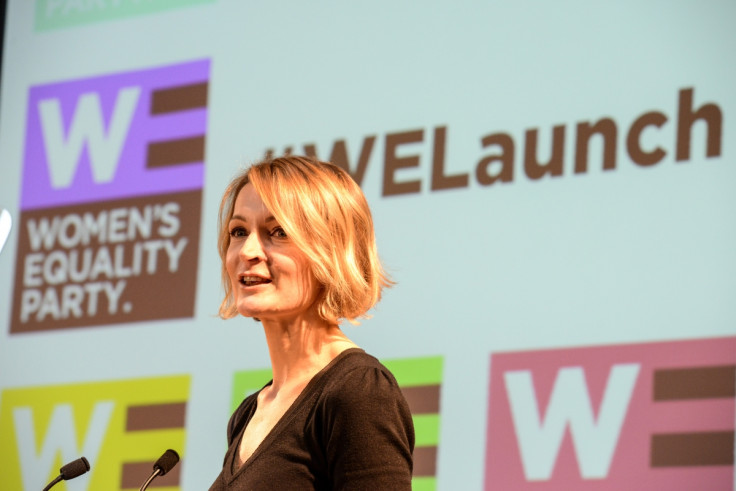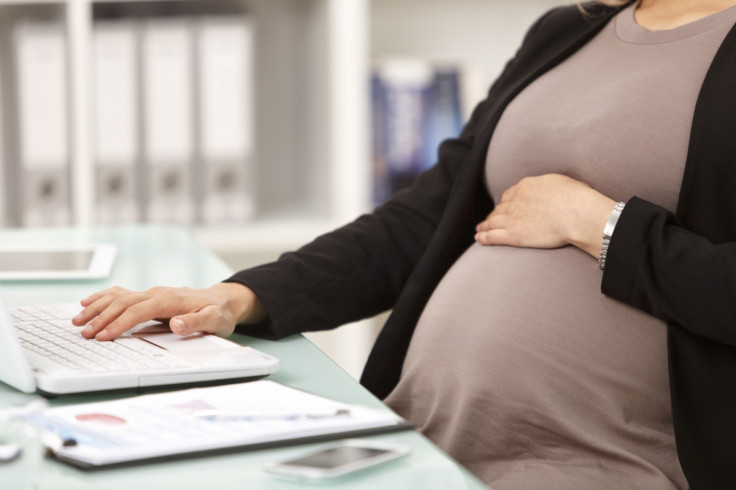Women's Equality Party leader Sophie Walker: More men must lead debate for equal pay

Women have long led the debate on equal pay between the sexes but despite calls for greater pay transparency, flexible working and affordable childcare, women's earnings are still depressed by these issues and more. Forty-five years after the Equal Pay Act, women still earn 81p for every pound earned by men. Ahead of the first birthday of the Women's Equality Party, IBTimes UK spoke to leader Sophie Walker about what needs to be done to close the pay gap for good.
"We really would like to see more men leading the debate," says the party's candidate for the London mayoral election. "Men make up the vast majority of senior managers so it is really crucial that we help lead and make workplaces fairer, more equal and more diverse. There are many male CEOs who get this and who are working with us – and who have joined the party. They see this is really an important thing to get on with, to make space for women and women's voices."
Progress to close the pay gap has been slow. Even Nicky Morgan's recent announcement that large employers will have to publish their pay gap figures contains bad news – the league tables won't be published until 2018. This means female workers will have to wait two years to find out if they are paid less than their male counterparts.
"We are already starting this conversation by waiting," Walker says. Moreover, further breakdown of pay within the league tables is vital – something critics say is lacking in the new plans. The Fawcett Society, which campaigns for equal pay, said although the mean and median pay gap is "very welcome", there are concerns companies will not have to publish their methodology.
"It should include the pay, employment status, working hours, and include data on retention during and after parental leave," Walker says. "It should break it down by ethnicity and diversity, because when you do that, you get a really good look at what is going on inside Britain's companies – rather than a slightly opaque average. This level of transparency will prompt companies to take action."

It is not just in the interest of women to be paid the same as men. A report published earlier in February by McKinsey suggested closing the gender pay gap could boost global GDP by $28tn (£19tn) over the next decade. In the UK, the effect of gender parity would improve the country's GDP by as much as £0.6tn.
"Women are a massive economic resource that is just not being harnessed in any way. We are living in a world of economic instability and market turmoil, and yet we know that businesses are barely tapping a huge resource for growth," Walker says.
"This is so often seen as a women's issue, but it is a business issue. More women leaders, more women on boards and at executive levels throughout companies, means bigger profits. A more diverse company, with a more diverse audience, makes a bigger profit – it's a no brainer."
Women are trapped at home without flexible working
Flexible working is still taboo in many companies but ensuring this is an option wherever possible is key to reducing the pay gap. Advertising jobs at all levels as flexible, part-time or job share – unless there is a strong business case not to – would open up more positions to women, including senior posts.
"Flexible working is a much more imaginative way to come at this problem," Walker says. "Right now we have lots of women trapped at home and unable to afford to work because of the way continue to approach working – even in 2016."
"Businesses flourish and do well when people can work in a way that best harnesses their creativity. We need to get away from presuming a job is always in an office during certain hours and any attempt to do work flexibly is an ask. It should be a given."
Few people would disagree that women face discrimination when they transition to the role of working parent. The pay gap becomes even more apparent when they hit their thirties – the age period they tend to have children. As men's careers take off, a woman's can stagnate. Many are forced to work below their skill level or in low-paid, part-time work.

"We need to get away from the situation where women are being penalised at work because it is expected that they will take time out to have children, and when they do, it is much harder for them to come back," Walker says.
Equal parenting opportunities is also key to closing the pay gap. Caring responsibilities also tend to fall on women but the cost of childcare is eye-watering, with the average part-time nursery place costing upwards of £6,000 a year. Currently, parents must wait until their children are three for a free childcare (working out at roughly 15 hours a week, and only in England) – which means many, mostly women, are forced to stay at home when they want to work.
"As a starting point, both parents should have six weeks' leave at 90% of pay, and we think government-funded childcare should be available for all children, from the end of paid parental leave at nine months," Walker says.
"By time free childcare kicks in at the age of three or four, you have already lost a huge number of women from the workplace. From nine months to three years is a big hole and a lot of women are falling down it."
More women in STEM
One of the largest factors in the persistent wage gap is the dearth of women in specific industries and jobs. High-paying industries such as science, technology, engineering and maths (STEM) fields are still dominated by men. In caring professions – such as social care or childcare – the workforce is 80% female and they are paid at living wage or below.
"The other part of the gender pay gap is the occupational segregation under which more men are in higher paid science and tech jobs than women," Walker says. "We need to encourage more girls into STEM subjects."

Only around 14% of the UK's STEM workforce is female, which reflects the lack of girls taking science and tech subjects at school. "The government's suggestion was to have 15,000 more girls studying maths and science by 2020. That's only an extra 3,700 girls a year across the whole of the UK," Walker says.
"What we need to do is encourage more girls into STEM A-levels and into jobs with apprenticeships and by encouraging young women to believe this is a career opportunity they can seize. There are five million STEM jobs across the UK, so there is no shortage of choice. But even during the economic downturn, 33% of STEM employers couldn't find enough people to fill their vacancies."
Walker says progress in closing the gender pay gap is slow because of attitudes towards the issue. Since the Women's Equality Party was born on International Women's Day in 2015, it has pushed for equal opportunities in every aspect of life – from work to home to politics. The party has gained more than 45,000 members in less than a year, a figure approaching the Green Party's 65,000.
"The Women's Equality Party grew from a sense of deep frustration that the other political parties were not representing the needs and experiences of half of the population," Walker says. "On the rare occasions when this was discussed – at the back of the manifesto in a 'special interest' section – it seemed as though it was a terribly difficult thing that we had to sit around and wait for after they have got through the more important issues first.
"Gender inequality is seen as something terribly complicated and very hard to fix, so any measures are always very cautious and require a significant amount of time to allow people to think and adapt. As a result, we end up with an inch by inch by inch approach, when we need to be bold and ambitious."
© Copyright IBTimes 2025. All rights reserved.






















